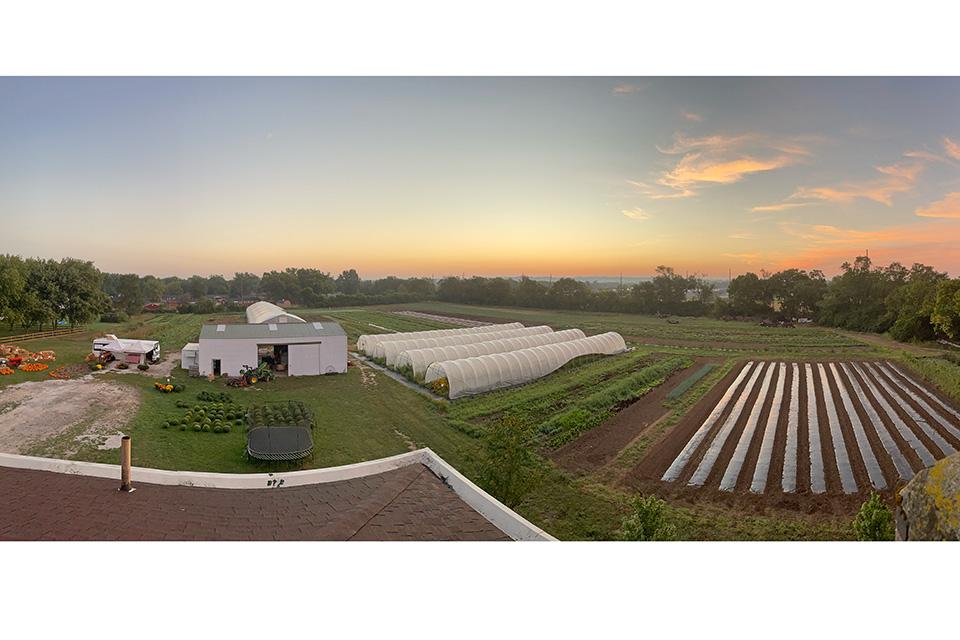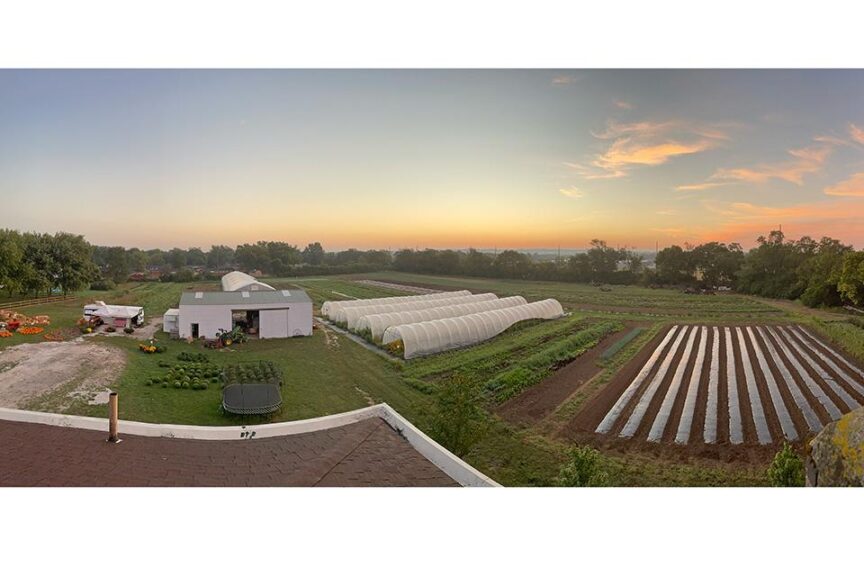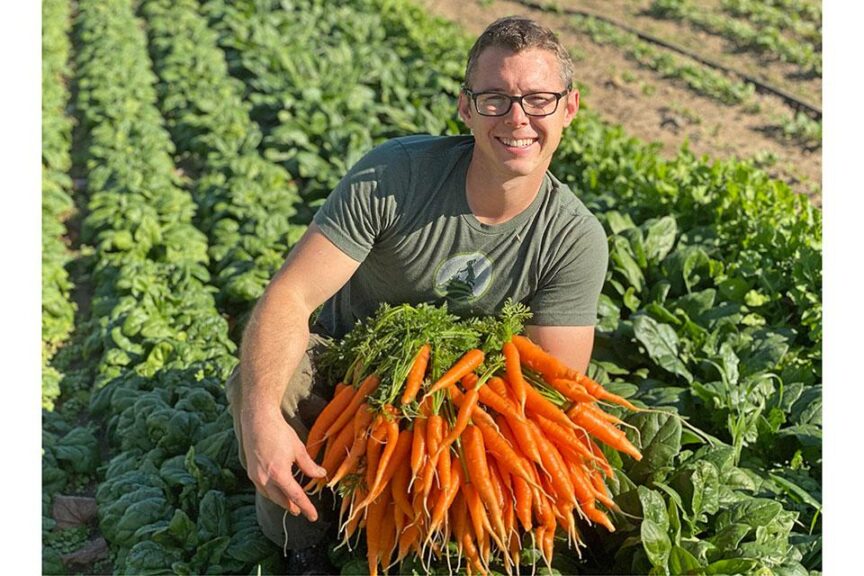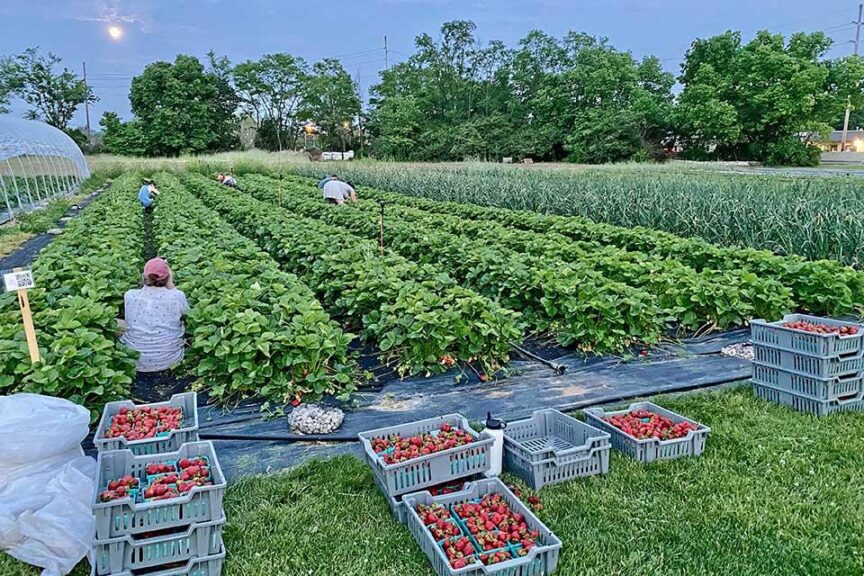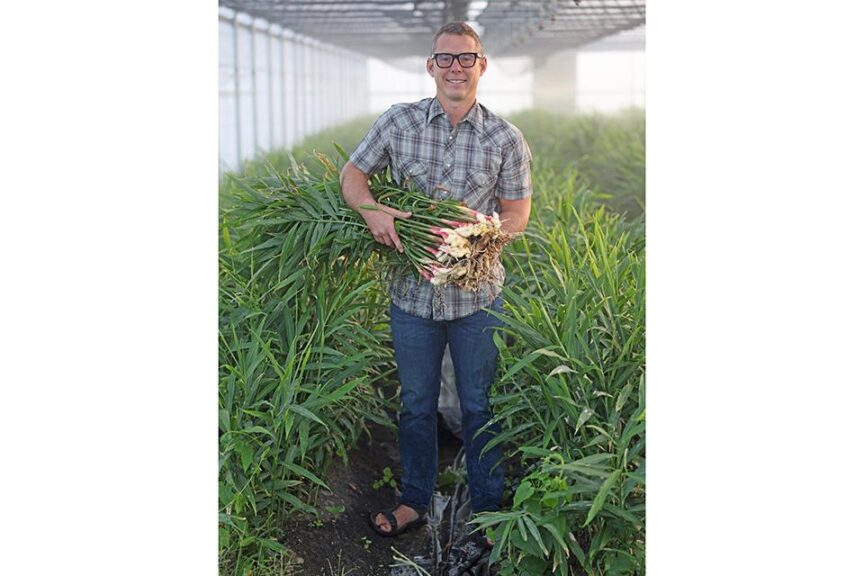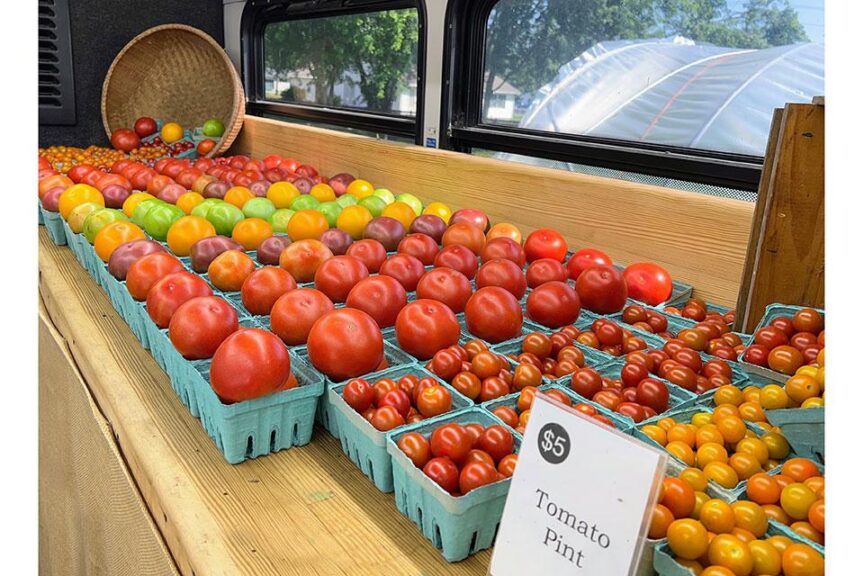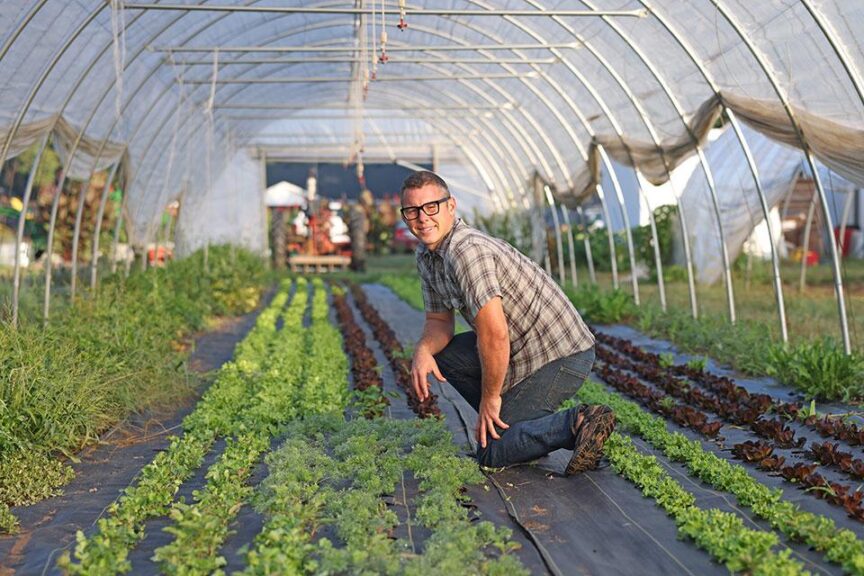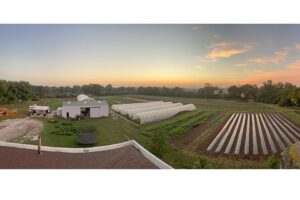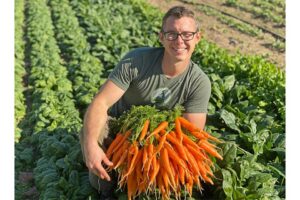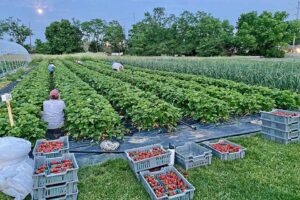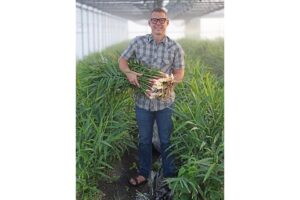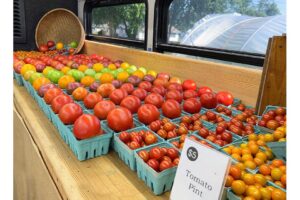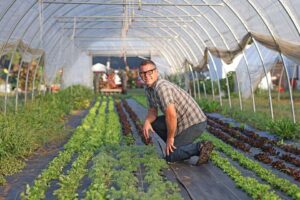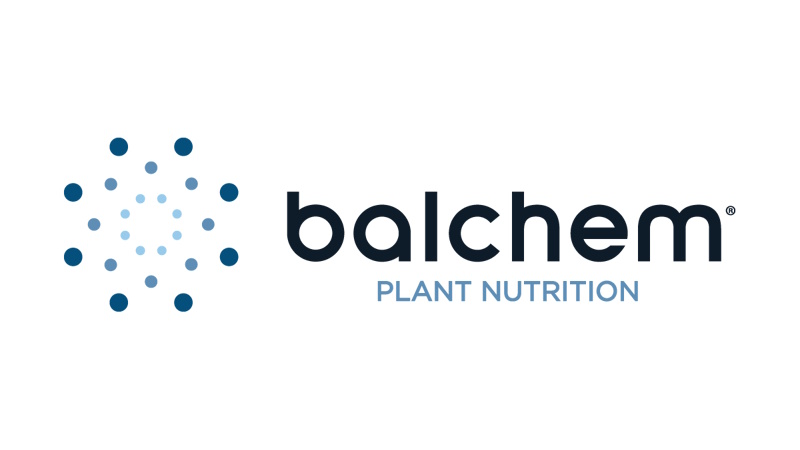How One Thriving Farmer Loves To Grow and Talk About Organic Vegetables
One of the internet’s leading voices on organic growing emanates from an 8-acre urban vegetable farm in southwest Ohio.
Michael Kilpatrick, owner of The Farm on Central, between Dayton and Cincinnati, doubles as the host of the Thriving Farmer Podcast. The online production — free to the public at ThrivingFarmerPodcast.com — has racked up 1.3 million downloads since its debut on March 5, 2019.
If consistency is the key to successful podcasting, consider Kilpatrick the Cal Ripken Jr. of digital ag media. By the time this story hits the streets, his podcast, which typically involves one-on-one interviews with industry leaders, will have reached 253 episodes over 241 weeks.
“I have a really good team. They are the ones that push me every single week to make sure we have an interview,” Kilpatrick says. “We almost missed one this spring. But because we’re in the content producing world, we typically always have reserves.”
Kilpatrick’s favorite episodes are those that “challenge me, that disturb me, that fire me up to keep me helping move the regenerative movement forward,” he says. His most popular podcast, at 8,747 downloads, features world-renowned soil biologist Elaine Ingham.
“I love learning. I’m always interested in what the guest has to say. I’m always interested in trying to find out new things about farming,” Kilpatrick says. “A lot of us get stuck in our little silos of what we think is possible. With interviewing new people all the time, it always opens my eyes to just what’s possible.”
‘Perfect’ Vegetables
The primary goal of the Thriving Farmer Podcast is to help growers — particularly new ones — build profitable (and ideally organic) farms. Subject matter includes successes and failures of farm businesses; physical and emotional costs of farming; and transformational stories. Kilpatrick, who prides himself as a farmer, presenter, inventor, and leader (as well as a husband and father of three), ties this into his other entrepreneurial initiatives, which include a monthly subscription-based learning platform (Small Farm University) and an annual digital event (Thriving Farmer Summit) that next occurs on Jan. 24.
“If I’m interviewing a brand-new farmer, I’m always trying to understand the challenges that they face as they get started farming. That makes it easier to educate the people that are coming into our education business,” Kilpatrick says. “We started the podcast because, at the time, I wasn’t actively farming. But with an education business that taught farmers, we needed a way to interact with farmers and get them interested in our brand. And, again, I was excited about interviewing them to find out more about what they’re doing because I’m just through and through a farmer.”
A vegetable farmer, for the most part; an organic one, to be more specific. Kilpatrick estimates that up to 70% of his podcasts wind up touching on vegetable growing. Around 85% speak to organic production, he says.
“I’ve grown animals in the past — I can do it — but that’s not my expertise,” Kilpatrick says. “I will geek out, though, on growing the perfect carrot.”
Organic strawberries account for half the crops grown each year at The Farm on Central, which Kilpatrick and his wife, Savannah, purchased in 2020. “There is a massive demand. We charge a hefty premium for ours, and we sell out every single year,” Kilpatrick says.
Fall root crops, such as beets, carrots, and winter radishes, are prevalent. More than a half-acre of tunnels account for ginger, turmeric, and garlic, which are the backbone of the operation’s health and wellness line, which includes several fire ciders.
“Our local farmer does our apple cider vinegar. He’s not a certified organic farm, but he is a very low-spray farm,” Kilpatrick says. “The only thing we can’t grow here locally is the lemons and the black pepper. We do as much horseradish as we can. The turmeric is probably one of the more challenging ones. Ginger is relatively easy; turmeric is a little bit more of a challenge just because of the long growth cycle.”
Greenhouse growing provides spring transplants that Kilpatrick has increasingly begun to ship online. Strawberry plants, which sold out this year, are already distributed across the country; in the works for 2024 are herbs, tomatoes, and peppers, according to Kilpatrick.
“We did a course this summer about annual strawberries, so there was a really good demand for the crop,” Kilpatrick says. “There’s also very few people doing organic plants.”
Faith and Transparency
Kilpatrick, whose current farm is not certified organic, considers himself a career-long organic farmer nonetheless. Now 36, he grew up on his family’s vegetable farm in Middle Granville, a hamlet in upstate New York. “We started, actually, raising peacocks and ducks and pheasants and all those crazy things and really realized quickly that vegetables were way more profitable. So we dove into that head over heels,” he says.
One of several exceptional mentors included a former Cornell University professor who was well versed in vegetable growing. “It’s really funny: He was on the team that tested Roundup the first year it came out,” Kilpatrick says. “So, really, full circle there.”
In 2012 Kilpatrick temporarily left his family’s farm to intern with Polyface Inc., a family-owned, pasture-based, local market farm in Virginia that bills itself as being “beyond organic.” Of significance, he and Savannah met there.
By 2016, after the birth of the couple’s first child, the Kilpatricks had moved to Ohio to be near Savannah’s family. This signaled the start of Michael’s overarching brand, Growing Farmers. “We saw the need for farmers to learn how to farm profitably,” he says. “A lot of people love to grow stuff, but there are very few profitable farmers that actually can bank their 401k or buy a new vehicle if they want to.”
In 2020 the Kilpatricks purchased what is now The Farm on Central. The operation exists, Michael says, to meet the local community’s need for good food. Already the birthplace of aviation, the Dayton area has been home to General Motors, General Electric, and Duramax Diesel. Nuclear research was conducted at the Mound Laboratory in nearby Miamisburg.
“A lot of industry, and with that industry came a lot of pollutants and contaminants,” Kilpatrick says. “My grandfather-in-law died of asbestos. These are the kinds of things we’re facing in this area. We saw people eating the all-American Midwest diet out here, which does not contain a lot of vegetables. That was one of the reasons for starting the farm — to have a healthier version of many of the things they buy on a daily basis; to be able to shop more farm fresh.”
Kilpatrick’s family farm in New York had adhered to “mostly organic” methods from the get-go, he says. It then graduated to certified naturally grown and, in the end, certified organic. “Someone told me it was too hard to go certified organic, and I was like, ‘Well, fine, let me try it; let’s see how hard it is,’” Kilpatrick says. “There’s paperwork. That’s really what it is.”
Today such paperwork is not in Kilpatrick’s plans. “We could literally be certified tomorrow if we wanted to be. We just don’t want to do the paperwork is what it comes down to,” he says. “Our customers don’t care because we’re transparent. We tell a good story, and we communicate well. We’re beyond organic. We’ve never used Roundup. We don’t use those kinds of things.”
Building relationships with organic growers has become a full-time responsibility, according to Kilpatrick. “I’m talking every day with somebody, whether it be supplying them or getting feedback from them or answering a question for them,” he says.
In the end, Kilpatrick reminds those farmers that it is not enough to just take care of their land.
“It comes back all the way to my faith. We’re asked to be stewards of the Earth, and, to me, being a steward of the Earth is to make it better than we found it,” he says. “But we also have to realize that we have to care about the sustainability of the business.”
At a Glance: The Farm on Central
Owners: Michael and Savannah Kilpatrick
Founded: July 2020
Location: Carlisle, OH
Size: 8 acres
Crops (all organic): Strawberries, root vegetables, tomatoes, peppers, greens, microgreens, herbs, onions, garlic, elderberry
Sales/Customers: Consumer-supported agriculture farm box, online shop, farm store





